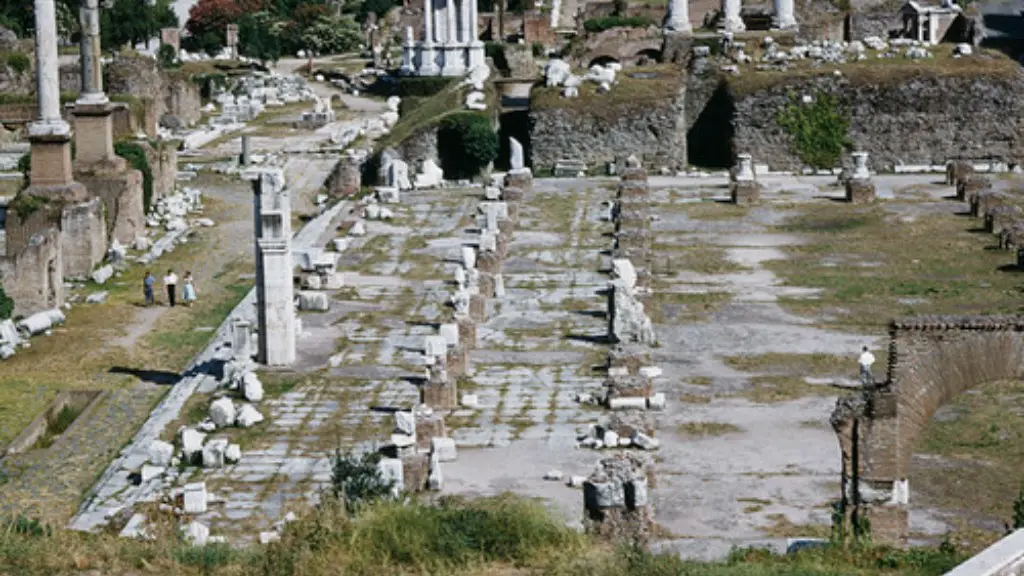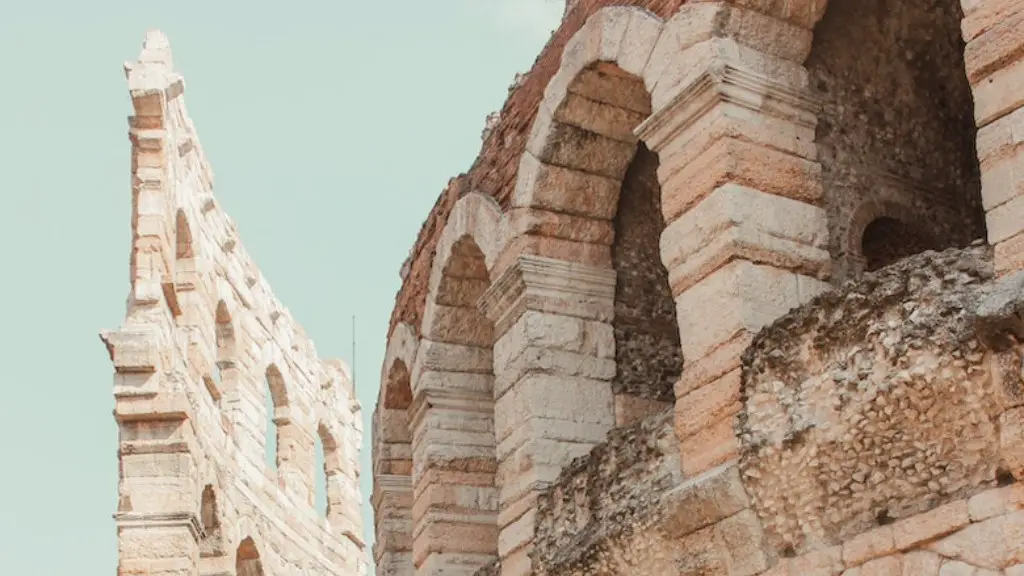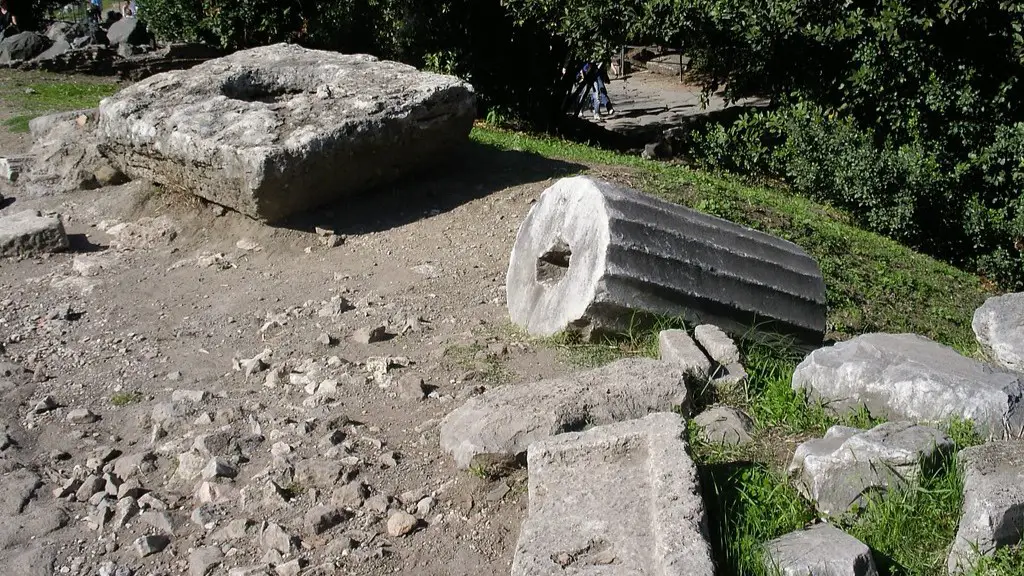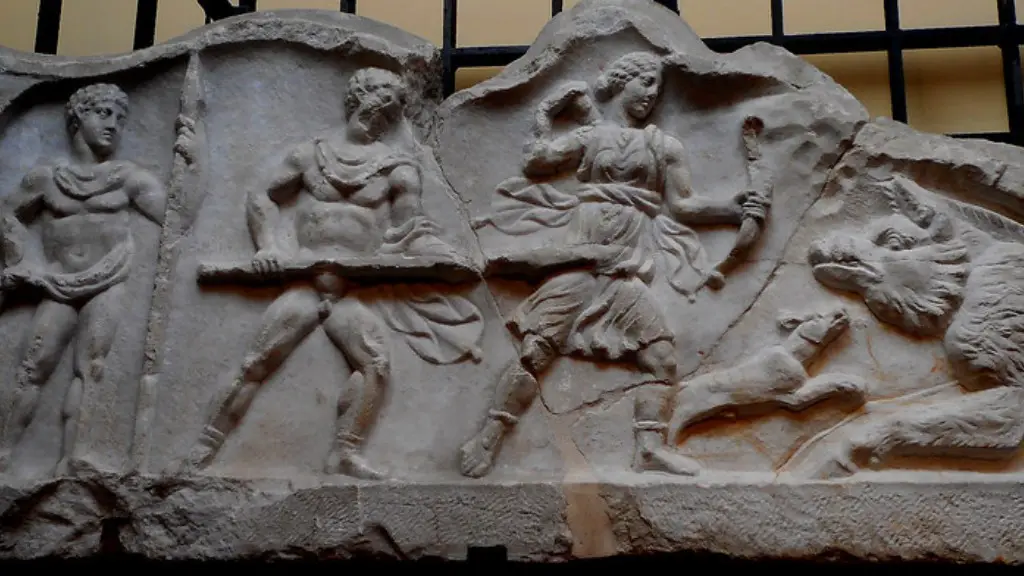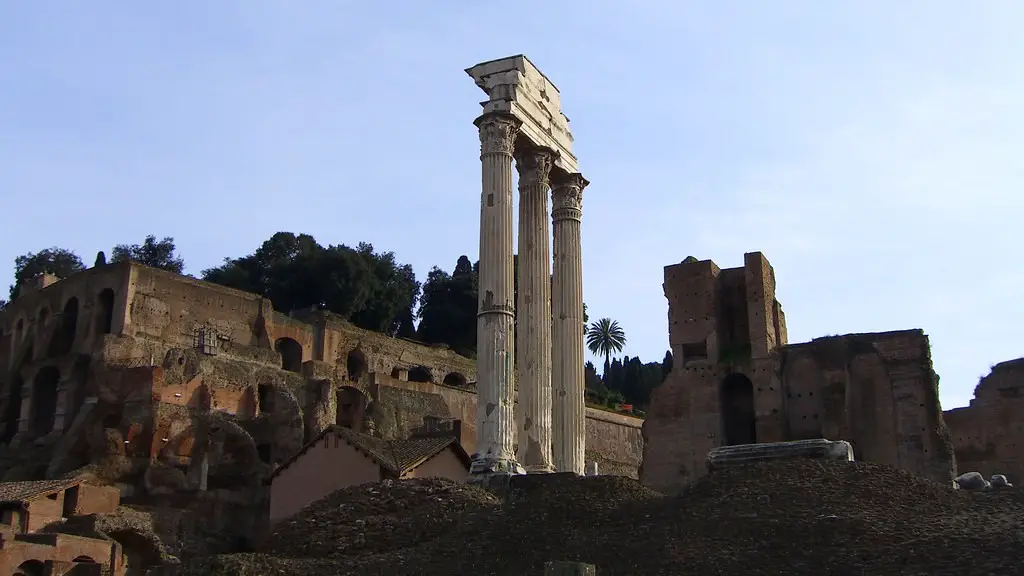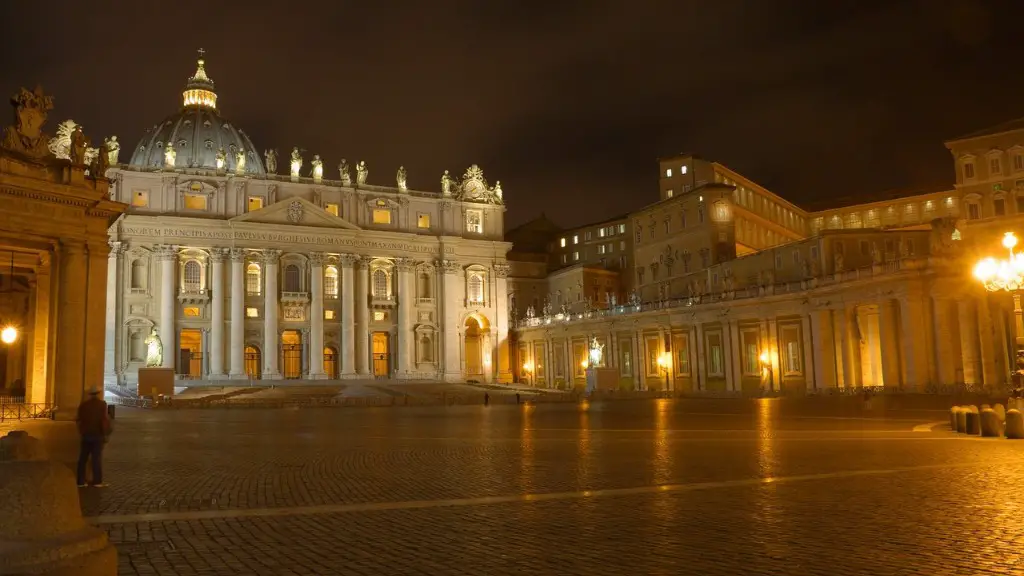Ancient Rome is well-known for its military achievements and its strong political structure. But many don’t know much about the Roman Senate. This piece of writing will give an in-depth look into what the Roman Senate was like during its time.
In its prime, the Roman Senate was a powerful governing body made up of wealthy citizens. Wealth was not the only requirement for a senatorial post; a candidate had to be well-educated, have a good reputation, and be a good public speaker. It is estimated that 2,000 men were in the Senate at the peak of the Roman Empire.
The senate had three main roles in the Roman system. Firstly, it advised the Emperor on matters of legislation and foreign policy. Secondly, it acted as the judicial court of Rome, deciding cases related to public law and private law. And thirdly, it processed financial transactions, such as setting taxes, approving building projects and providing funds for public works.
The Roman Senate was able to do this because of its immense prestige. The Senate was seen as the ultimate authority in Rome and it was held in high respect. Furthermore, the atmosphere at Senate meetings was quite different and more formal than today: senators had to maintain a certain level of decorum, and the punishment for misbehaviour was very severe.
Furthermore, the senators had a specific dress code that they had to abide by. Rich and colourful clothing was expected, and senators were expected to wear their togas with pride. This was an important factor in establishing the importance of the Senate in the Roman system.
The Roman Senate was a very influential institution and its power and influence was felt throughout the Roman Empire. It was the driving force behind many of Rome’s political, economic and military successes. The Senate provided a level of stability, which in turn allowed the Roman Empire to flourish.
The Senate was also a place of great debate, where senators discussed issues and argued in an effort to increase the power of the Senate and ensure their own survival. This allowed for a level of democracy that was unparalleled in the ancient world.
Political Influence
The Roman Senate was an incredibly powerful institution, and its influence over Roman politics was huge. Its members were able to influence the policies of the Roman state, approve or veto legislation, and ratify treaties. They had the power to condemn an emperor or appoint a new one and were often consulted by the emperor on matters of state.
In addition, the Senate had the power to declare wars and levy taxes. They had the ultimate authority to make and ratify laws, which affected everyone in the Roman Empire. This power was so vast that the Roman Senate was often compared to the gods in terms of its control and influence.
The Senate’s power and influence was also reflected in its membership. Members of the Senate were respected and esteemed amongst the people of Rome, and leadership positions were sought after by ambitious and powerful men. In effect, the most influential people in Rome were the senators.
The senators also could influence public opinion in a very effective way. They had the power to sway the opinion of people through oration, and their opinion often had a huge impact on the outcome of a deliberation. This was a powerful tool for senators as they could shape public opinion in a way that would benefit their own political or economic interests.
Legacy
The Roman Senate was a long-lasting institution, outlasting the Western Roman Empire by centuries. It continued to influence Roman politics and government well into the Middle Ages and beyond. Even today, many countries model their legislative process after the Roman Senate.
The Senate left a lasting impression on Roman society and its legacy continues to this day. The Senate’s authority and power was so great that its influence was felt throughout the entire Roman Empire. Its laws and policies were established as the standard for hundreds of years to come and its legacy still informs our modern-day understanding of government and politics.
What was the Roman Senate like? It was an influential institution with immense power and authority. It set the standard for Roman politics and government, and its influence and legacy continue to this day. For these reasons, the Roman Senate holds a special place in history and will continue to do so for many years to come.
Cultural Significance
The Roman Senate had a huge impact on Roman culture and society. As an institution, it acted as an integral part of the Roman political system and its influence over the people of Rome was immense.
The influence of the Senate was felt in various aspects of Roman culture. The Senate was responsible for determining public holidays and festivals, regulating religious practices and responsible for upholding the laws and customs of Rome. The Senate also had a major hand in deciding who could become citizens and what their rights were.
The Senate also had a huge cultural impact in terms of language. The Latin language was used extensively in Senate meetings and was responsible for developing the Latin language. In addition, the Senate’s influence on Roman law and customs was so great that many of them are still in place today.
Finally, the Senate’s influence was also felt in art and literature. The presence of Senators in ancient Rome was always a sign of prestige, and this was reflected in the artwork and literature of the time. In many cases, a Senator’s name was featured prominently in artworks or literary works, and this was seen as a sign of respect and admiration.
Conclusion
The influence of the Roman Senate in ancient Rome was immense. It was a powerful institution that had a huge influence on Roman politics, society, culture, and even language. Its capabilities and power allowed the Roman Empire to greatly expand and thrive, and its legacy has continued to this day.
The Impact of the Roman Senate
The Roman Senate impacted the Roman Empire in many ways. It was responsible for the passage of laws, setting taxes and tariffs, and provided a level of stability that allowed for the Roman Empire to grow. Furthermore, it was a place for senators to discuss and debate, creating a level of democracy that was unparalleled in the ancient world.
The Roman Senate’s influence was also felt in other aspects of Roman culture. Its presence in art and literature was significant, and much of what we still consider to be Roman law and culture today has its origin in the decisions made in the Senate. Finally, the Latin language was greatly affected by the language used in Senate meetings, and even today, Latin is still studied and used as a form of communication.
The Decline of the Senate
The Roman Senate began to decline in the 4th century AD when Rome was no longer a superpower and its importance waned. The Roman Senate eventually became just an advisory body to the emperor, and its power was significantly weakened.
Furthermore, the Senate was increasingly bypassed by the emperor, who often made his own decisions without consulting the Senate. This weakened its influence and it eventually faded away. The Senate did remain in some form until the 5th century AD and its influence can still be felt today.
Modern Comparisons
Today, we can see the influence of the Roman Senate in many of the governments around the world. Many countries use a Senate-style legislature, and many of their laws and customs draw from their Roman roots.
In the United States, for example, the Senate has been seen as an influential body since the country’s founding. It has significant power in the legislative process, and many of its traditions and practices echo those of the Roman Senate.
Conclusion
In conclusion, the Roman Senate was an influential and powerful institution during its time. It was responsible for much of the law, customs and culture of the Roman Empire, and its legacy is still felt today. Its influence on the world is undeniable; its laws, language, and customs are still used in many countries to this day.
